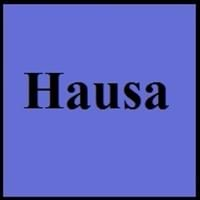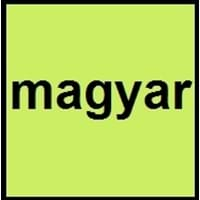Countries
Nigeria
European Union, Hungary, Serbia, Vojvodina, Serbia
National Language
Gambia, Nigeria
Austria, Gambia, Hungary, Romania, Serbia, Slovakia, Slovenia, Ukraine
Second Language
Nigeria
United States of America
Speaking Continents
Africa
Africa, Europe
Minority Language
Benin, Cameroon, Cote d'Ivoire, Ghana, Niger, Sudan, Togo
Austria, Croatia, Romania, Slovakia, Slovenia, Ukraine
Regulated By
Not Available
known, Research Institute for Linguistics of the Hungarian Academy of Sciences (Magyar Tudományos Akadémia Nyelvtudományi Intézete)
Interesting Facts
- Hausa language is the most important and the best known of the Chadic branch.
- There are about one-fourth of Hausa words come from Arabic.
- Hungarian language has only preserved most of its ancient elements.
- 'Magyar' is the Hungarian name for the language, the 'Magyar' is also used as an English word to refer to Hungarian people.
Similar To
Not Available
Mansi and Khanty Languages
Derived From
Not Available
East and South Slavic Languages
Alphabets in
Hausa-Alphabets.jpg#200
Hungarian-alphabets.jpg#200
Writing Direction
Not Available
Left-To-Right, Horizontal
Thank You
gode ku
köszönöm
How Are You?
yaya dai
Hogy vagy?
Good Night
mai kyau dare
Jó Éjszakát
Good Evening
barka da yamma
jó Estét
Good Afternoon
barka da rana
Jó Napot Kívánok
Good Morning
mai kyau safe
jó Reggelt
I Love You
Ina son ku
Szeretlek
Excuse Me
gafara dai
elnézést
Dialect 1
Gaananci
Csángó
Where They Speak
Ghana
Bacău County, Rumania
Dialect 2
Kurhwayanci
Oberwart
Where They Speak
Niger
Austria
Dialect 3
Daragaram
Székely
Where They Speak
Niger
Székely Land
Native Name
حَوْسَ (ḥawsa)
magyar / magyar nyelv
Alternative Names
Abakwariga, Habe, Haoussa, Hausawa, Kado, Mgbakpa
Magyar
French Name
haoussa
hongrois
German Name
Haussa-Sprache
Ungarisch
Pronunciation
Not Available
[ˈmɒɟɒr]
Ethnicity
Hausa–Fulani people
Hungarians
Language Family
Afro-Asiatic Family
Uralic Family
Subgroup
Chadic
Finno-Ugric
Branch
Not Available
Ugric
Early Forms
No early forms
Old Hungarian
Standard Forms
Hausa
Modern Hungarian
Signed Forms
Not Available
Not Available
Scope
Individual
Individual
ISO 639 6
Not Available
Not Available
Glottocode
haus1257
hung1274
Linguasphere
19-HAA-b
ohu
Language Type
Living
Living
Language Linguistic Typology
Subject-Verb-Object
Subject-Object-Verb
Language Morphological Typology
Fusional
Agglutinative, Synthetic
All Hausa and Hungarian Dialects
Most languages have dialects where each dialect differ from other dialect with respect to grammar and vocabulary. Here you will get to know all Hausa and Hungarian dialects. Various dialects of Hausa and Hungarian language differ in their pronunciations and words. Dialects of Hausa are spoken in different Hausa Speaking Countries whereas Hungarian Dialects are spoken in different Hungarian speaking countries. Also the number of people speaking Hausa vs Hungarian Dialects varies from few thousands to many millions. Some of the Hausa dialects include: Gaananci, Kurhwayanci. Hungarian dialects include: Csángó , Oberwart. Also learn about dialects in South American Languages and North American Languages.
Hausa and Hungarian Speaking population
Hausa and Hungarian speaking population is one of the factors based on which Hausa and Hungarian languages can be compared. The total count of Hausa and Hungarian Speaking population in percentage is also given. The percentage of people speaking Hausa language is 0.52 % whereas the percentage of people speaking Hungarian language is 0.19 %. When we compare the speaking population of any two languages we get to know which of two languages is more popular. Find more details about how many people speak Hausa and Hungarian on Hausa vs Hungarian where you will get native speakers, speaking population in percentage and native names.
Hausa and Hungarian Language Codes
Hausa and Hungarian language codes are used in those applications where using language names are tedious. Hausa and Hungarian Language Codes include all the international language codes, glottocodes and linguasphere.





